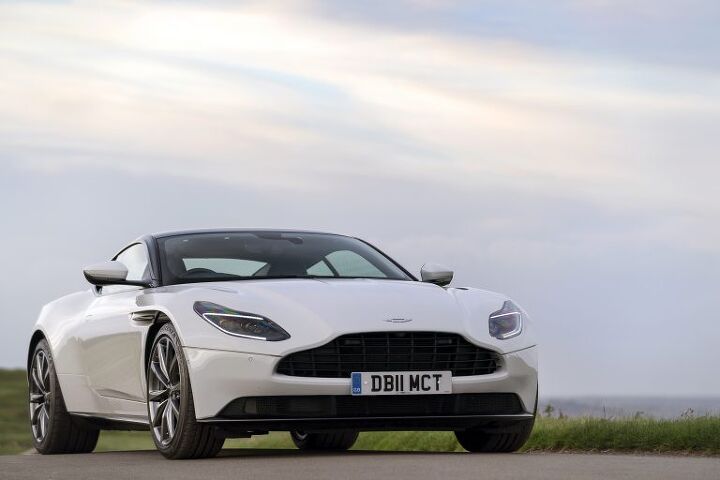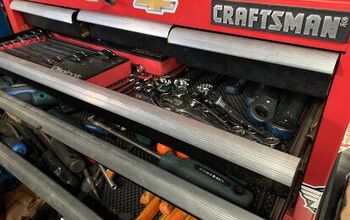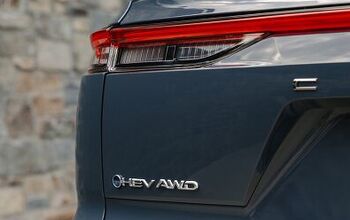Rapide Attempts To Vanquish Brexit: Aston Martin Stockpiling Cars in Germany

Brits have now been grappling with their Brexit situation for what now seems like an interminable amount of time, with no shortage of digital ink and political hot air spilled about the subject.
Looking past all the posturing, however, a disorderly departure from the EU could contain serious ramifications for companies making products in Britain, and fancy-pants Aston Martin has initiated a contingency plan to handle a “no deal” Brexit. Prepping for a worst-case scenario, the company is stockpiling cars in … Germany.
The historical irony of that move is not lost on this author.
A quick geopolitical recap of the situation would likely be helpful to most readers (and myself, truth be told). Britain plans to hold a vote in Parliament on January 15th on the government’s deal to leave the European Union. It had originally been scheduled for December 10th, but the Prime Minister postponed it, admitting in the House of Commons it would have been “rejected by a significant margin.”
The withdrawal deal, which is required before more wide-ranging discussions on future relations can begin, foresees relatively close future economic ties with Europe in order to avoid the imposition of a hard border between EU member Ireland and Northern Ireland, which is part of the United Kingdom.
Leaving the EU with no deal in place brings about the prospect of supply chain interruptions, goods shortages, possible tariffs, and blocked ports. This possibility has, in recent weeks, pushed companies like Aston Martin to ramp up contingency plans designed to avoid disruptions in getting their British-made products to other markets.
In an interview with Reuters, Aston boss Andy Palmer outlined some of the actions his company is taking to avoid calamity, including avoiding the port of Dover and flying in automobile components on airplanes.
“We don’t have any assurances,” said Palmer, referring to the flow of goods after Brexit. “One assumes if you’re putting parts onto a standard chartered plane, no one’s going to kick you off.”
I’m picturing Aston execs smuggling DB11 parts into the country in their carry-on luggage, or sewing key components into the linings of their jackets so cars can be built at the factory in Warwick.
Another tool in the company’s Brexit Belt is the apparent stockpiling of cars in Germany. “It’s an inventory to some extent that we put in place during the course of 2018 … and depending on what happens in the next few weeks, may or may not increase,” Palmer told Reuters. There is, after all, a solid chance that a disorderly Brexit may cause delay of goods entering the country, throwing a wrench into any just-in-time production process, particularly automotive manufacturing.
While the well-heeled Aston Martin customer base may very well be able to absorb a price increase slapped on their cars thanks to Brexit, they’ll likely be less impressed by delays caused by complicated paperwork at the new border and associated delays.
We imagine that, keeping with its cool-as-ice image, Aston has given its contingency plan a name worthy of a James Bond flick (like the Crypto Contingency, or something).
[Images: Aston Martin)

Matthew buys, sells, fixes, & races cars. As a human index of auto & auction knowledge, he is fond of making money and offering loud opinions.
More by Matthew Guy
Latest Car Reviews
Read moreLatest Product Reviews
Read moreRecent Comments
- Tassos Jong-iL Not all martyrs see divinity, but at least you tried.
- ChristianWimmer My girlfriend has a BMW i3S. She has no garage. Her car parks on the street in front of her apartment throughout the year. The closest charging station in her neighborhood is about 1 kilometer away. She has no EV-charging at work.When her charge is low and she’s on the way home, she will visit that closest 1 km away charger (which can charge two cars) , park her car there (if it’s not occupied) and then she has two hours time to charge her car before she is by law required to move. After hooking up her car to the charger, she has to walk that 1 km home and go back in 2 hours. It’s not practical for sure and she does find it annoying.Her daily trip to work is about 8 km. The 225 km range of her BMW i3S will last her for a week or two and that’s fine for her. I would never be able to handle this “stress”. I prefer pulling up to a gas station, spend barely 2 minutes filling up my small 53 liter fuel tank, pay for the gas and then manage almost 720 km range in my 25-35% thermal efficient internal combustion engine vehicle.
- Tassos Jong-iL Here in North Korea we are lucky to have any tires.
- Drnoose Tim, perhaps you should prepare for a conversation like that BEFORE you go on. The reality is, range and charging is everything, and you know that. Better luck next time!
- Buickman burn that oil!




































Comments
Join the conversation
Since I left the UK nearly 50 years ago, I didn't get to vote, but I still believe "BREXIT" will not happen. Sanity will prevail.
I want a Midsomer Murders about parts-smuggling luxury car execs!